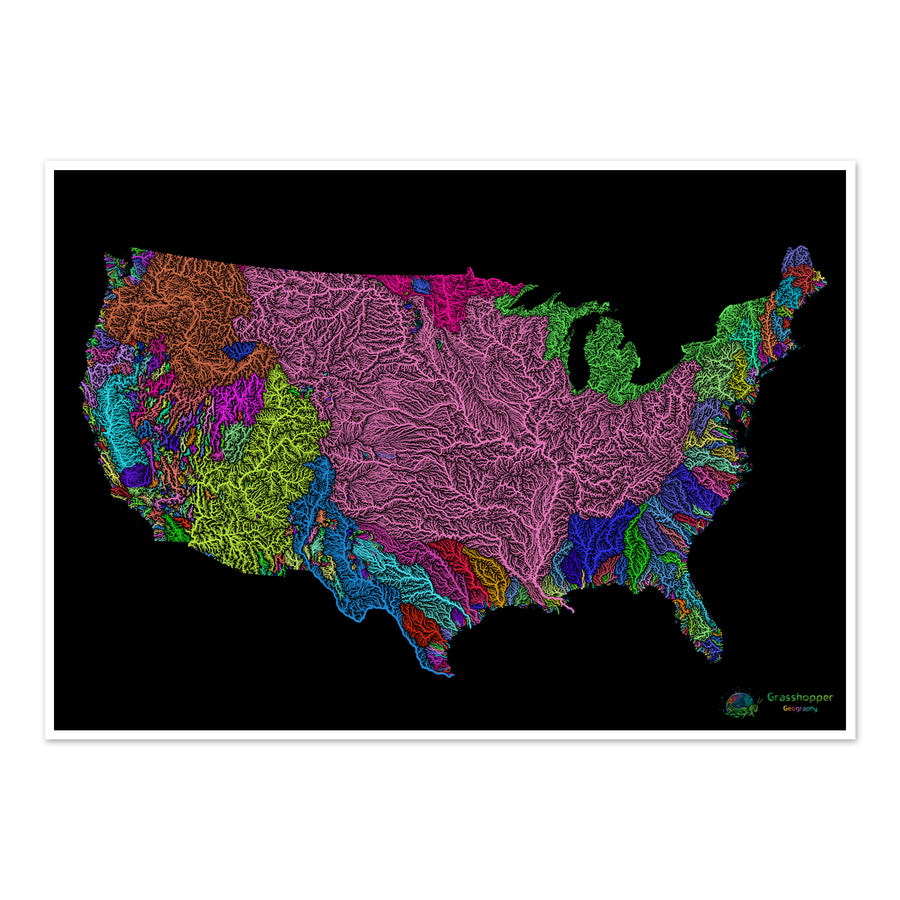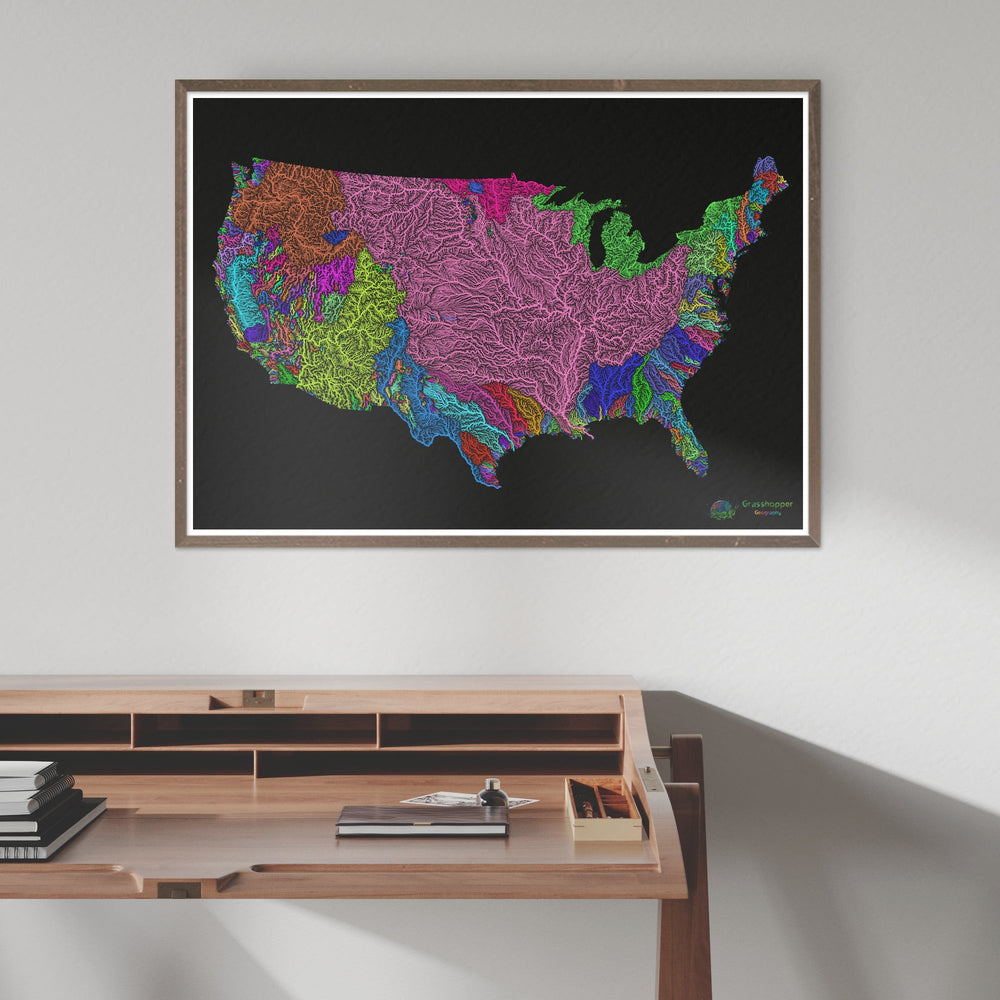Why is it important to credit artists?
Short answer: because sharing someone else's work without attribution is not only unethical, but illegal, too.
Here's your chance to learn how to stay on the safe side, help independent artists and understand the importance of giving credit.
For you it's just a nice image. For an artist this image helps to pay their bills: it's their personal advertisement.
Social media is not an entertainment platform for artists, it's first and foremost a marketing and advertising tool. We work really hard to deliver you the content you hopefully find interesting enough to stay for. And we want you to stay, because we like you: we like that you like us, we like that you occasionally like and share our work, and we like that your followers can also like us if they'd like to. :) Sharing our work with an attribution (our name, a clickable website url, social media mention or tag) helps us to grow our small business, expand our reach, gain more followers and land us new opportunities.
No, we don't. We just ask you to show your support by crediting our work. To credit all the work you share on socials - it doesn't cost you anything, but means a lot to small businesses and creatives (and it also shields you from being sued, if the legal owner finds your post). But it's not only about money. Surely, we're talking about product sales too, but there are so many other possibilities: a new interview/article, an exhibition, licensing our work for a book or museum, appearance on a conference, and so on.
As the photographer Kenneth St. George put it: "...we are always one photo away from our lives and careers changing for the better." One image can lead to an opportunity of a lifetime and it all depends on if you're properly credited or not. We just want some help with that, that's all. (Moreover, as we already hinted, sharing uncredited art is considered theft and is illegal in most countries. We'll tell you more about it in a few.)
Everyone's work should be valued and respected, not only artists' and creators'. Actually, even a drawing of a ten-year-old is protected by copyright law. That photo you took of your lunch the other day? That's your intellectual property and it's copyrighted material, just the same as oil paintings or any of our maps are.
The internet is such a young platform, we're still figuring out how to use it without hurting anyone. No one would question the necessity of attribution when citing another author or using a photo in their thesis or book, why should it be different online?
Well, that's exactly the point of giving proper credit. :) Most people don't bother with logos or watermarks when posting their pictures on the internet, right? Fortunately, most artists do (they need to), but sometimes it's simply not enough. Though we never post or share our maps without our logo, the internet is full of copies of our work missing the little grasshopper in the corner. Cropping and altering copyrighted material is not only highly unethical, it's illegal, too.
There are many ways to find a source for the image you want to share. The best way is to use reverse image search. On a computer you just need to drop your image in the Google search bar to find its source. On mobile, you can use one of the reverse image sites, like TinEye.
Sometimes it's hard to find the original creator because of all the stolen/uncredited material. You see, posting art without credit encourages other people to do the same. Just because it looks like the image doesn't belong to anyone, most would think it's "public domain". (You would be surprised to learn how small percent of the internet is actually in public domain...)
With distinctive images, like our maps, you can try a simple text search as well. If you google "colourful river maps", most results will show you Grasshopper Geography maps.
When none of these searches help, and you really want to post that image, simply ask your followers if they know whose work it is. The internet is a huge playground with billions of connections, there's always someone who knows something. After they helped you find the original creator, you can edit or repost the image with proper attribution to avoid future problems.
Social media is about likes and followers for everyone: for artists, for brands, for your friend and neighbour, and for bigger sites as well. They choose the content for their posts according to their followers' interest, in the hope to gain even more followers.
Seeing our work shared on bigger sites without an attribution is the most disheartening of all forms of art theft. Knowing they found our work good enough for their followers, but at the same time robbing us from the opportunity of valuable shares and followers is really a letdown.
If you ever find our map shared anywhere without giving us credit, writing a comment with our name and website is a good start. If you are willing to do more (and be forever in our debt :)), you can contact us, so we can contact them, or file a complaint.
No, unfortunately it wouldn't, at least not automatically. Fair use (or fair dealing in some countries) is a defense you can use in certain conditions, but there are no absolute rules. There are many misconceptions about fair use and posting on social media, please read what the Copyright Alliance has to say on the matter: https://copyrightalliance.org/5-fair-use-myths-social-media/
Well, according to copyright law and social media policies you are only allowed to post your own work, works from the public domain, works that qualify for fair use (a pretty vague definition) or others' work with permission, including works with a creative commons license. This doesn't apply to retweets, Facebook shares, reblogs and all means of distribution of the original work, where the source is the owner's social site, of course.
Some artists publicly state that they encourage posts and shares of their work, if it is properly credited. It means you can post their work without asking for permission every time you do so, in exchange for a correct attribution. That's exactly what we do: we love seeing our work shared and admired online, we just need you to show some support by giving us credit to help other people find us.
If it is really just for personal use (i.e. not making any money off it, not even indirectly like YouTube ads), you are welcome to use the maps as long as the logo is visible and you properly credit us.
A properly credited artwork has both the artist's name and the source of the picture with a clickable url:
Artist/credit: Robert Szucs, source: www.grasshoppergeography.com
Tagging us on social media would also do the trick (and we thank you for that), but a URL for source is a must.
If you are unsure, or you'd like to use our maps for a commercial project, please get in touch, we are happy to discuss it.
There are some occasions when you cannot use our work, though. We strictly prohibit using our maps in activities (incl. speeches, posts, videos, etc) that promote or foster discrimination on the basis of race, religion, gender, marital status, familial status, national origin, age, mental or physical disability, sexual orientation, gender identity, source of income or other protected status. Please don't use our maps for political purposes either, without asking for permission first.
Finally, here are some examples you might find interesting:
A politician used our map in his campaign video without any attribution. We reached out, but they ignored our emails for weeks. When our tweet about copyright infringement went viral, where hundreds of people supported our case, they instantly found our original email and replied. We sorted out the issue, they payed the licensing fee (including penalty).
A youtuber of a highly popular channel (140K+ subscribers) included one of our maps in his video (100K+ views in the first week) without any attribution. We contacted him, suggesting different ways to solve this issue, but he decided to simply delete our map from the video, along with all the comments that referred to it. (These comments mostly asked for a source or stated that they'd love to buy it as wall art...) A typical lose-lose situation.
A simple image share on Facebook, when our properly credited map found a way to a group of river paddlers. Thousands of people visited our shops coming from Facebook alone - we sold eight times more maps in a few days than in the previous month. A beautiful example of the power of a credited artwork in action.
Famous examples and sources we used:
Tuesday Bassen vs Zara https://www.theguardian.com/fashion/2016/jul/21/zara-accused-copying-artist-designs-fashion
Danny Quirk vs Madonna https://www.diyphotography.net/artist-annoyed-at-madonna-using-his-work-and-claiming-fair-use-to-avoid-payment/
Giving credit where credit is due. Why is it so important to credit the artist? https://www.diyphotography.net/giving-credit-credit-due-important-credit-artist/
Who is protected by fair use? https://www.newmediarights.org/business_models/artist/who_can_claim_fair_use
Top 5 fair use myths on social media https://copyrightalliance.org/5-fair-use-myths-social-media/
BLKCreatives on Why should you credit artists and photographers on social media https://blkcreatives.com/credit-photographers-on-social-media/
Please note: the content on this site is not professional or legal advice, it was created for informational purposes only.



